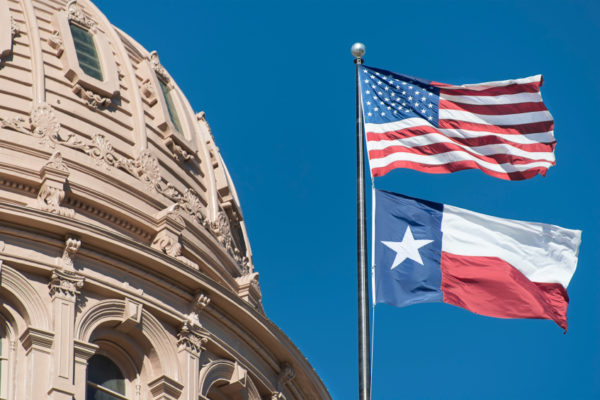Last year in Wayfair v. South Dakota, the U.S. Supreme Court allowed Texas and the other states to collect their sales tax on internet sales even when the vendor has no physical presence in the state. Texas had been losing significant revenue under the old rule that said that out-of-state vendors had to have a “brick and mortar” store or warehouse in Texas before they could be forced to collect sales tax.
Texas now needs to exploit the new rule. The tax, if collected, could help satisfy any of the state’s highest financial needs. For instance, Texas schoolchildren need the money for teachers and books.
The rule is an administrative rule, not passed by the legislature. The Texas comptroller’s office recently announced that they will not enforce the collection of sales tax against a remote vendor selling under $500,000 a year in Texas. That $500,000 exemption is too high. If Texas imposes burdensome taxes on Texans, it can and should impose them on out-of-state vendors. If Texas merchants are not getting offered a half-million-dollar exemption from sales tax, then neither should the remote sellers.
The U.S. Constitution prevents a state from imposing a higher burden on out-of-state Americans than it imposes on its own people. As the 13 colonies joined together to defeat the most powerful nation on Earth, they were intensely jealous of one another.
The Articles of Confederation provided that “[t]he better to secure and perpetuate mutual friendship and intercourse among the people of the different states in this union,” the inhabitants of any state shall be “subject to the same duties, impositions and restrictions as the inhabitants of that state.”
There is, on the other hand, no constitutional grounds for a provision favoring out-of-state vendors. The Supreme Court overruled the old physical presence requirement because it was in effect “a judicially created tax shelter for businesses that limit their physical presence in a State.” It is “not the purpose of the commerce clause,” the court wrote, “to relieve those engaged in interstate commerce from their just share of state tax burden.” “It is essential to public confidence in the tax system that the Court avoid creating inequitable exceptions.”
If a remote seller receives revenue from Texas, it can be asked to collect Texas sales tax from that revenue. Texas cannot be sued to force a $500,000 exemption. It will give that much up only if it shoots itself in its own foot.
Before the Supreme Court ruling in Wayfair, 23 mostly low-population states that had fewer stores and warehouses tried to appease the physical presence rule by adopting a uniform tax base, a single tax rate for the entire state and payment to only one state office. South Dakota also adopted a $100,000 annual exemption and gave out free software that was immune from audit. None of that is necessary post-Wayfair. The Texas comptroller, with all the other states, won Wayfair. However, the Texas comptroller went beyond South Dakota’s $100,000 exemption to $500,000.
Thanks to the internet and a competitive market for sales tax software, the cost of sales tax compliance is cheap and, with competition, getting cheaper. The commercial software providers say they can keep up with 300 changes in sales tax a year, tack the sales tax onto the customer invoice, collect the tax from the sales price and pay it over to the states, all for about a penny a transaction. It is essentially the same cost to comply with Texas tax from an out-of-state terminal as it is from a Texas terminal. The $500,000 exemption is far too high to cover the penny-a-transaction compliance cost.
Texas needs to pay to attract and hold the best teachers. Schools need books and buildings. The $500,000 exemption does not help Texas get what it needs.
Calvin H. Johnson is the John T. Kipp Chair in Corporate and Business Law at The University of Texas at Austin.
A version of this op-ed appeared in the Houston Chronicle, Waco Tribune Herald, Corpus Christi Caller Times, and the Austin American Statesman.




